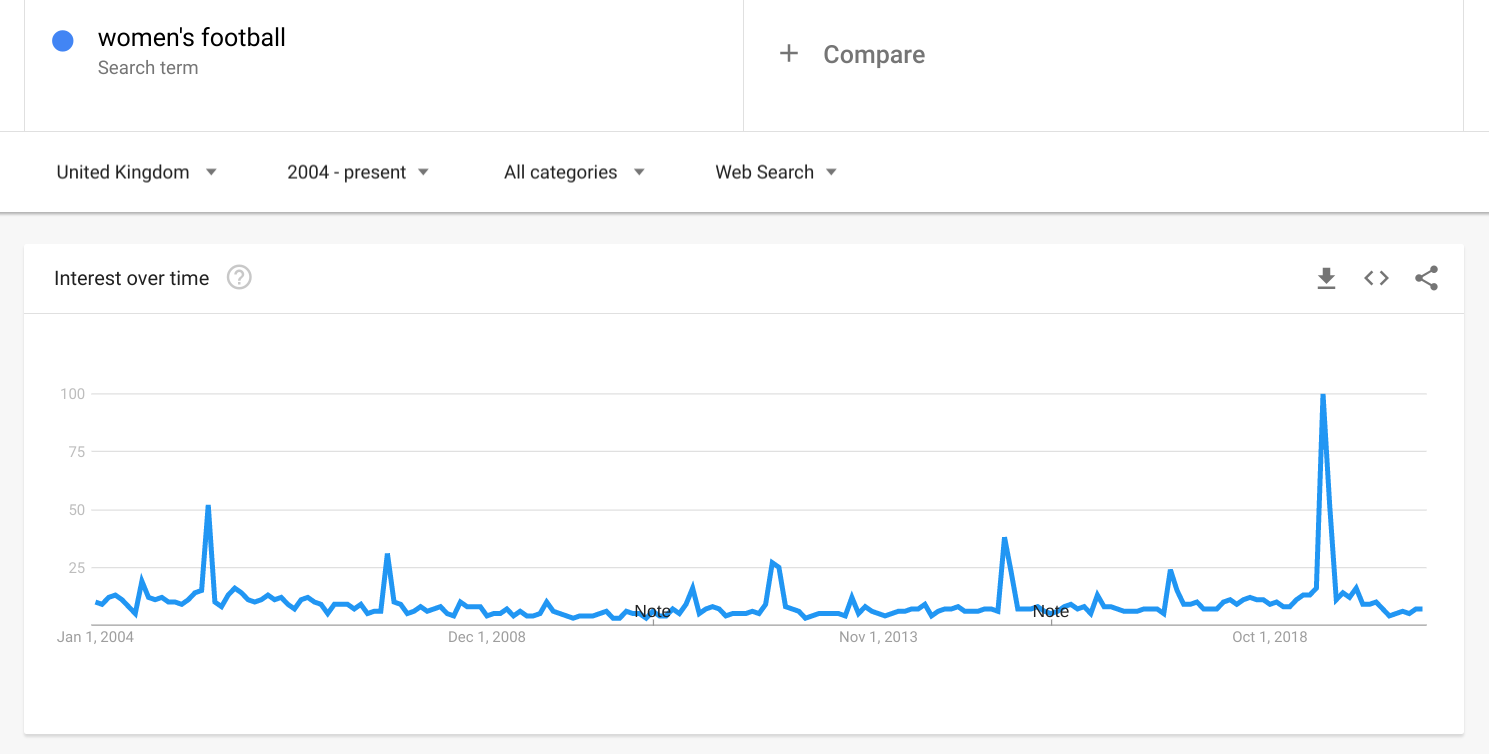Sport and Women’s Empowerment: Four Inspirational Icons
by Caitlin Purvis
Historically, the world has assumed several aspects of society to be by ‘male default’ — the world of sport being a notable example. Throughout history, women have been standing at the sidelines, waiting for their opportunity to come into play. When we use terms such as ‘women’s athletics’, and ‘women’s football’, or even ladies’ tennis, we imply that a woman running on the pitch or picking up a racket is something out of the ordinary. After all, we never hear anyone say ‘men’s football’.
Throughout the years, women have worked relentlessly to get rid of the prejudices they have faced throughout their sporting careers and change the perception of women in sport. Back in 2019, when media coverage and public interest of women’s sport was beginning to peak, steps were being made for funding to better reflect the sporting talents of women.
When the Lionesses played against the unstoppable United States Women’s soccer team in the 2019 FIFA Women’s World Cup, the evidence of the nation finally taking an interest in women’s football was undeniable. During June 2019, Google search trends around ‘women’s football’ experienced a dramatic spike, proving that the public was keen to engage with and watch women in sports.
As with the rest of the industry, the world of women’s sport is currently experiencing a crisis. The hype that was associated with women’s sport last year is being jeopardised by the COVID-19 stand-still. In fact, women’s sport has faced a longer lockdown period than that of men’s sport.
Brazil recently announced that the tournament hosting bid for the Women’s World Cup in 2023 has been withdrawn. In response to this, Dame Tanni Grey-Thompson said, “We can’t just rush to get men’s sport back and not think about women’s sport. There has to be a balance and diversity, otherwise some of the strides women have made could be lost”. A major UK trailblazer in women’s football, Kelly Smith, argues that the game has been “pushed aside”.
Despite the momentum of women’s sport being threatened, numerous sports stars have taken it into their own hands to protect it. Not only have these women been inspiring fans everywhere over recent years, but they’ve also been unapologetically demanding our attention through raking in even more trophies and addressing the important issues. Luckily, some of the sporting world’s most influential women aren’t going anywhere anytime soon.
Here are four sportswomen to watch in the post-lockdown sport world.
Megan Rapinoe
Rapinoe’s international success is admirable. Winning six global awards, including the 2019 Ballon d'Or Féminin, the 2019 FIFA Women's World Cup Golden Ball, the 2015 FIFA Women's World Cup All-Star Team, the 2019 FIFA FIFPro Women's World XI, the 2019 FIFA Women's World Cup Golden Boot, and the 2019 Best FIFA Women's Player, Rapinoe’s success is on par with the men at the top of men’s football rankings.
Rapinoe is also a hugely influential sporting athlete, with 2.2 million Instagram followers. Taking advantage of her huge following, she uses her platform for activism, regularly discussing issues such as the gender pay gap in sport, the Black Lives Matter movement, and LGBTQ+ rights.
Naomi Osaka
Named by Forbes as the highest-paid female athlete ever, Osaka is an international grand slam champion at the age of 22. By the age of just 20, Osaka achieved the incredible feat of defeating Serena Williams in the final of the US Open. Since then, the Women’s Tennis Association has ranked Osaka as number one, and she has gone on to win another two slam titles. Her list of breath-taking achievements continues, as she remains the only player of Haitian or Asian descent to hold the top ranking in singles.
At the age of three, Osaka moved from Japan to New York. In order to represent Japan in the Olympics, she gave up her US citizenship — since this is a choice that Japan requires its athletes to make before the age of 22.
In addition to taking the sporting world by storm and engaging in influential sportswear collaborations, she addresses matters such as racism and sexism within the sporting industry: two issues by which she has been personally affected in her sporting career. Like Rapinoe, Osaka uses her online community and 1.1 million Instagram followers for social activism and the championing of women in sports.
Allyson Felix
Across the pond, Allyson Felix is no one-trick pony. Felix is an American track and field sprinter competing in the 100m, 200m, and 400m race. When she achieved her twelfth World Championship gold medal in the Doha World Athletics championships back in 2019, she sent shock waves around the world — even surpassing Usain Bolt’s world record.
Felix did it all after giving birth to her daughter in November 2018, and when sponsors planned to pay her 70% less as a new mother, she took a stand by discontinuing the contract and advocating for maternity rights. Nike, the sponsor in question, has since amended its policy and now confirms that female athletes will “no longer be financially penalised for having a child”.
Dina Asher-Smith
Confirming her position on 2020’s list of most influential sports stars, Dina Asher-Smith is the fastest woman in British history. In 2019, she was named as one of the UK’s most influential people with African, African-Caribbean, and African-American heritage after smashing national records.
After breaking the British 100m record in London, she then went on to break the British 200m and 4x100m relay records at the World Championships in Doha in Qatar. At the rescheduled 2021 Tokyo Olympics, she is certainly one to look out for!
She is an inspiration for young women everywhere, as she too came from a park running background in London. In addition to moving from strength to strength throughout her sporting career, she also achieved a 2:1 History degree from King’s College in London. Dina Asher-Smith has proven to young girls everywhere that they have the opportunity to excel in any way they choose.
Throughout the world of sport, women have shown power, resilience, and remarkable talent. After battling through diversity numerous times over and inspiring women around the world, these sports stars are sure to bounce right back into action despite the uncertainty that has faced the sports sector this year.
For more female sporting record-breakers, join us as we look back on women’s place in the 2018 Winter Olympics.






